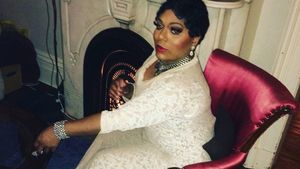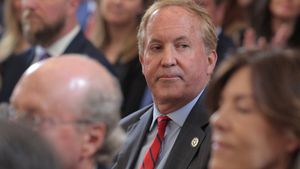“Hello, sir, my name is Taylor. My pronouns are ‘they, theirs, and them.’”
For years I fought a running battle with many of the current leadersof the transgender movement. They were committed to identity politics and a narrow reading of trans-only for the basis for the movement. I wanted to not only open up the politics to include LGB people but move beyond that toward genderqueerness.
I lost — it wasn’t even close. The movement moved on. I was at least two decades ahead of schedule.
I coined the term “genderqueer” back in the 1990s in an effort to glue together two nouns that seemed to me described an excluded and overlooked middle: those of us who were not only queer but were so because we were the kind of gender trash society couldn’t digest.
A prominent gay columnist immediately attacked me in print for “ruining a perfectly good word like ‘queer.’” (Harrumph!)
Joan Nestle, Claire Howell, and I then used the word for the title of our anthology of emerging young writers. But I don’t think anyone expected the term or the concept to really catch on.
Then one year I was attending the Creating Change conference and using the (wonderfully gender-neutral) bathrooms, and saw someone had posted a sticker on the wall that read, “A Genderqueer Was Here!” I thought, Hmm … that’s really interesting. Someone is using that not as a descriptor, but as the basis for their identity. So it begins.
Fast-forward about 20 years and I was just reading Matt Bernstein’s anthology Nobody Passes, and in it writer Rocko Bulldagger bemoans the term’s very existence, declaring, “I am sick to death of hearing it “
Such is the arc of a new idea.
But if you opened your eyes at all, you could see all this coming a long way off.
At Camp Trans, outside the now-defunct Michigan Womyn’s Music Festival, I’d meet one young person after another simply known as "boychik," "demigirl," “transmasculine,” “tryke,” and any number of exuberant genders few of us had contemplated.
Camp Trans itself was always overrun by one set of teens and 20-somethings explaining patiently, if exasperatedly, to their lesbian mothers — who’d brought them in tow to experience the beauty of womanhood — that they needed to move beyond their transphobia and accept trans people as women and not men. And a totally different set of teens and 20-somethings were joyously destroying by example the categories of men, women, lesbian, and transgender.
We’ve spent almost 40 years fighting for a bunch of identity categories that are based entirely on the implicit acceptance that there are two and only two basic sexes, with the associated possible gender identities and sexual orientations that come from them.
And now young people are about to blow all that up.
I was reminded of this while watching Showtime’s hit TV show Billions,which introduced a new character, Taylor, whose gender I was having fun trying to puzzle out.
Taylor is an intense, brilliant intern, who wears a shirt, tie, and buzzed crew cut, but otherwise has no identifiable landmarks by which the viewer might navigate the gender terrain.
Finally, they are introduced to Bobby Axelrod, the head of multibillion-dollar hedge fund Axe Capital.
As played by Asia Kate Dillon, they reply: “Hello, sir, my name is Taylor. My pronouns are ‘they, theirs, and them.’”
Cutting-edge stuff. And a signpost for where the gender dialogue is going. Just like when student Maria Munir, 20, came out to a nonplussed President Obama as “nonbinary.”
In a recent article at Refinery29, Dillon explained that they didn’t just read for the part. As they read the part, “I did some research into non-binary, and I just thought, Oh my gosh, that’s me… When I read the script for episode two and I saw the ‘they, theirs and them,’ that’s when the tears started to well up in my eyes. Then when I read Axe’s response, which is, ‘Okay,’ and then the scene just continues, that’s what ultimately moved me to full-fledged tears.”
This is powerful stuff. And it’s only the start. The trans movement is going to have to accommodate and open the boundaries perhaps more than it would like.
But if it’s the job of young people to expose and explode their elders’ paradigm, these young people are off to a wonderful start.
“Hello. My name is Riki. My pronouns are ‘they, theirs, and them.’”
RIKI WILCHINS is an author and advocate. This #FirstPerson essay was originally published on The Advocate.































































































































